January 2016
Our successful students, and praise for two people who have proven very important to our program
by John Waller, Director
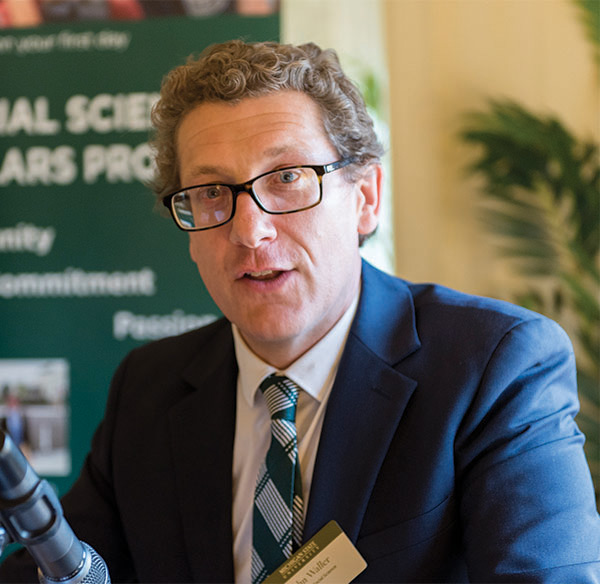
We are now four semesters into the Scholars Program and delighted by how well it’s developing. In September we welcomed our second freshman cohort: eighteen students from Michigan, Ohio, Maryland and Missouri, with an average ACT of 32, an average high school GPA of 4.1, and majors ranging from political science, psychology and history to urban planning, criminal justice and economic geography. It’s an exceptionally intelligent and enthusiastic group. In class, they’ve Skyped with an impressive range of experts, including former leaders of South Africa’s ANC, leading academics from across the world, and prominent state politicians and college alumni. They’ve also been working hard on research projects with a view to publishing in the annual Scholars Book. In addition, several freshmen Scholars have already started internships, one will shortly be the co-author of a peer-reviewed publication, and another has just been selected to attend the prestigious G200 Youth Summit in Bavaria later this year.
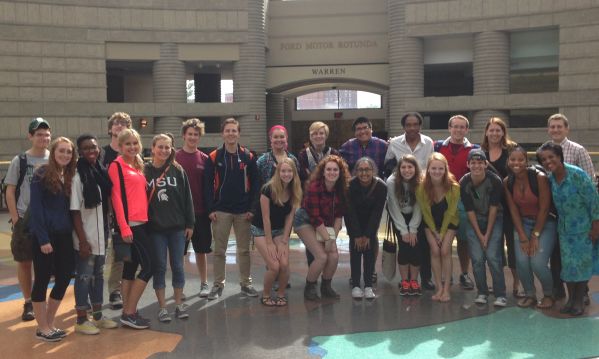
Speaking of success, our sophomores have also had a fine year and a half. We capped a successful start to the program on campus with an enjoyable and enlightening study abroad in the UK. Highlights include meeting Dame Professor Sally Davies, the UK’s Chief Medical Officer, and Professor Richard Wilkinson, a brilliant epidemiologist and author on contemporary social issues. The sophomore Scholars have spent the past semester studying a series of global conflicts while preparing their research papers for publication in the Scholars Book and applying for summer internships. Next semester they’ll produce high-quality documentaries, using the facilities and expertise of the History Department’s LEADR Lab. Oh, and we’ve also teamed up with scholars at the State University of New York at Binghamton who annually publish short biographies of American suffragists. Twenty-one of our Scholars have been given the names of suffragists from the early twentieth century whose life stories they will uncover and write up for this important project.
Below you’ll find short reflections by some of the Scholars describing their positions as professorial assistants, their time in the UK, and some of their accomplishments to date. You’ll also be able to learn about two people whose contributions to the Scholars Program we value very highly: David Bailey and Jennifer Wallace. The Scholars Program is, of course, dependent on the support of dozens of alums, administrators, academics and mentors. We thank you all very much and look forward to enjoying with you the successes of these very special Spartans.
Jennifer Wallace
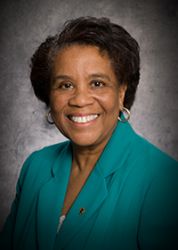
I first met Jennifer Wallace just a few weeks after accepting the role as director of the Scholars Program when I gave a short presentation to the college’s Alumni Board. Jennifer came up to me afterwards, full of warmth and enthusiasm, and introduced herself as the ‘TIP-Lady’. More on that in a moment. I had mentioned my desire to ensure that the makeup of the Scholars Program reflect the social and ethnic diversity of our state. Jennifer offered to help me achieve this goal. And, to the extent that we have succeeded, it is largely due to her acumen, energy and passion for creating opportunities for the underserved.
Within a couple of weeks of our first conversation, I was in Jennifer’s enormous State of Michigan vehicle on a bitterly cold winter day heading for Detroit. We were holding an informational session to speak with prospective applicants from high schools in Metropolitan Detroit. En route I learned much about the city and its history. On subsequent visits, always with Jennifer, I spoke with dozens of fabulous students. Two of them, both from Renaissance High School, are now Social Science Scholars. On these trips I also had an opportunity to ask the ‘TIP Lady’ about her spectacular career and to come to understand why so many hundreds of people know her by this title.
Jennifer speaks of Michigan State University with great fondness and gratitude. Living and studying as a Spartan, says Jennifer, taught her “how to think.” Other students, faculty, and dorm managers all enhanced her education. She also learned to be “very passionate about causes and stand up for what I believed in.” Her entire career attests to how fully she took this commitment to heart. Having completed a second degree at the University of London, Jennifer returned to her home town of Pontiac to direct and later to found several non-profits. She was then recruited by Governor Jim Blanchard to create a program that, since its inception in 1987, has dramatically and positively affected the lives of young men and women in Michigan. It’s called the Tuition Incentive Program (hence Jennifer usually goes by the title of ‘TIP Lady’) and provides free college tuition, up to their first 80 credits, to anyone who has been on Medicaid for 24 consecutive months. This remarkable program allows the financially disadvantaged to gain the college education that allows them to pursue rewarding careers. And, over the last 18 years, tens of thousands have benefited from TIP. No wonder that Jennifer proudly refers to it as “her mark on the planet.” Few can claim to have given opportunities to so many. In a small way I could see the impact of TIP during a recent Scholars trip to Detroit in which Jennifer participated. Not only did our guest speakers know about the program but they both had close friends or relations whose successes could be directly tied back to the availability of funds that made it possible for them to attend college. Jennifer’s commitment to allowing young men and women to achieve their potential has been profound and transformative.
Jennifer’s dedication to the education of disadvantaged young men and women also defined her role as Outreach Manager for Financial Aid Programs in the Michigan Department of Treasury. For many years her blue truck almost continuously criss-crossed the state, from Grand Rapids and Detroit to Muskegon and Marquette, as she helped gatherings of parents and students to understand how financial aid works. Addressing over 100,000 students a year on obtaining the funds to attend college, she always encouraged them with the mantra, “If I believe, I can achieve.” But every bit as important as their own self-belief was Jennifer’s confidence in and devotion to them. In fact, it is hard to overstate how deeply Jennifer is dedicated to Michigan’s youth or how hard she is willing to work on their behalf. I’ll mention just one example. In recent years, Ferris State University has more than doubled its number of students in its TIP Scholars Program. University President David Eisler, highlighting Jennifer’s role in this development, explains, “I've seen instances where she has taken students, had them spend the night at her house, brought them up to our institution to retake the ACT so they can get in, and brought them into my office so I could meet them. This is a lady who goes far, far beyond what anyone would ever expect in terms of trying to promote the program.” Austerine Hambrick, director of guidance for the Detroit Public Schools, is just as laudatory. In an interview with John Bebow, of the Center for Michigan, she described Jennifer as a highly effective speaker who always makes sure that students “are understanding what she is saying.” And Jennifer can be counted on to go far beyond the call of duty. Hambrick told of Jennifer driving to MSU from the Upper Peninsula at 3am one morning in order to take a speaker to an event in Detroit. She then returned to the UP to finish her tasks there before driving back to Detroit in order to collect the speaker!
Although she is now retired, Jennifer is an active board member of the MSU Black Alumni, is a committed volunteer for the Big Brothers/Big Sisters program, and helps to raise substantial sums to help the state’s orphans attend college. I owe her an enormous debt of gratitude for helping me to recruit some wonderful Scholars and for serving as a mentor to one of our finest current students.
Jennifer is the deserved winner of a long line of accolades: a Mayoral Tribute for her work as Director of TIP; recognition from Michigan State Senator Dan DeGrow and Michigan Supreme Court Justice Maura Corrigan for her efforts to improve educational opportunities for youth in the state; a Bridge Builder award from the Greater Lansing Urban League; an Outstanding Education Award from the Detroit Public Schools; an honorary doctorate from Ferris State University; and honors from the YMCA and the GAP State Student Summit Initiative. In addition she was selected by the Center for Michigan as “one of the many things working well in Michigan in 2009.” And this is an abbreviated list!
I asked Tristyn Walton, one of the Scholars whom Jennifer helped us to recruit, if she’d like to add a few words of her own. Here’s what she wrote:
 “I grew up hearing that it took a village to raise a kid; Ms. Jennifer Wallace is a part of that village for me. Last year the Scholars were each connected to a mentor with whom to network and keep in touch; I was fortunate enough to be assigned to two mentors. I remember first meeting Ms. Wallace during my senior year of high school and from that very first interaction I could immediately feel her warm and caring spirit and could tell that she was a person who genuinely wanted to see the inner city kids in Detroit succeed. So when Dr. Waller gave me the option to have her as another mentor I couldn’t pass up the opportunity. For me, Ms. Wallace is much more than a mentor through the Scholars Program, she’s a lot more like family and she’s a part of my support system here in Lansing while away from home. She’s always there for me, whether it’s just for a quick lunch and manicure date or if I really need someone to talk to. Not only do I genuinely love and appreciate Ms. Wallace for everything that she’s done for me these last two years, but I know that my family does too. It’s rare that you find warm-hearted and selfless individuals today and it is without doubt that Ms. Wallace is amongst this few."
“I grew up hearing that it took a village to raise a kid; Ms. Jennifer Wallace is a part of that village for me. Last year the Scholars were each connected to a mentor with whom to network and keep in touch; I was fortunate enough to be assigned to two mentors. I remember first meeting Ms. Wallace during my senior year of high school and from that very first interaction I could immediately feel her warm and caring spirit and could tell that she was a person who genuinely wanted to see the inner city kids in Detroit succeed. So when Dr. Waller gave me the option to have her as another mentor I couldn’t pass up the opportunity. For me, Ms. Wallace is much more than a mentor through the Scholars Program, she’s a lot more like family and she’s a part of my support system here in Lansing while away from home. She’s always there for me, whether it’s just for a quick lunch and manicure date or if I really need someone to talk to. Not only do I genuinely love and appreciate Ms. Wallace for everything that she’s done for me these last two years, but I know that my family does too. It’s rare that you find warm-hearted and selfless individuals today and it is without doubt that Ms. Wallace is amongst this few."
Well said, Tristyn.
Throughout her career Jennifer has been a powerful and effective champion for racial equality. She knows how much remains to be done and of the absolute importance that “current students of color right here on this campus feel valued as they should be.” Jennifer has been key to ensuring that the Social Science Scholars Program provides opportunities for able and enthusiastic students from all backgrounds. When she takes me to Renaissance High School, Cass Tech, or elsewhere, it is immediately clear that the students know and respect her. As a result, they listen to me and apply to the program. I’m delighted that the Social Science Scholars are among the many thousands of Michigan men and women who are indebted to Jennifer’s ardent commitment to justice and opportunity.
David Bailey
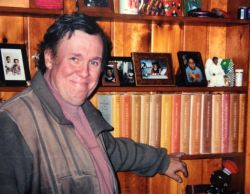
Last month Michigan State University lost a wonderful scholar and many of us lost a treasured friend. David Bailey taught History at MSU for 36 years during which he became widely known for his deep commitment to student learning. I would encourage you to visit the memorial site set up in his memory to read more about how profound an impact an academic can make by investing in students and his fellow faculty members – the testimonials from former colleagues and students are appropriately moving and heartfelt. But I do wish to highlight David’s contribution to the Social Science Scholars Program.
In 2008 I had lunch with David to discuss the possibility of organising a new study abroad program in Oxford, UK. At David’s favorite eatery – the Peanut Barrel – he helped me to see that our study abroad could be different – more demanding, ambitious and therefore rewarding. A year later we took 20 students to Oxford where they lived in a seventeenth-century college and worked in small groups on research projects that required them to spend long hours in the ancient reading rooms of the Bodleian Library. I recall with pleasure how often the students were still at their tables when, at 5pm, I left to meet my family for dinner. At the end of the trip most of the students submitted papers to a journal issue that we compiled. Their articles – on topics ranging from an outbreak of cholera in Oxford in the 1830s to the UK miner’s strike of the early 1980s – were very good indeed.
To a large extent the Social Science Scholars Program is an elaboration of the study abroad that David envisaged. It was in Oxford that I learned what David had realised decades earlier: that our students can achieve great things given the right level of support and encouragement. Four years later when a colleague drew my attention to the college’s plan to create a Scholars Program my first impulse was to consult David. We spent hours talking about what form the program might take – David was absolutely never selfish with his time – and the next day I drew up a version of the current program. I could not have hoped to meet a better sounding-board for discussing an initiative that involves investing in MSU students. David also strengthened my resolve to ensure that the program strives to provide students from poorer backgrounds with an opportunity to flourish as Spartans; indeed, one of his many legacies to the university and the state will be a scholarship for ‘disadvantaged students from the state of Michigan who are History majors at MSU.’
Over the past two years David served on the advisory board of the Social Science Scholars Program, participated in interviews, met informally with Scholars interested in History, and attended social events during which he charmed parents and students by his warmth, wisdom and good humor. His close involvement was fitting because in so many ways the program reflects the passions for teaching and for nurturing talent to which David devoted his career. He will be sadly missed. A scholarship is being established in his memory.
Social Science Scholars take on England in Study Abroad program
by Robert Bondy, MSU Journalism Senior
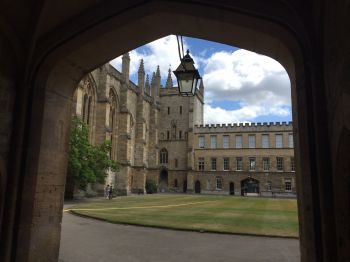
The opportunity to enhance your learning with a trip abroad is something many students value, and that value only grows when the trip serves as a reward for a yearlong focus on a particular subject.
Twenty-one students in the Social Science Scholars Program got to live this opportunity this past summer in a study abroad trip to England. The month-long trip included a week of studies at the University of Cambridge and three weeks in London and served as the conclusion of an entire academic year focused on healthcare.
“We studied health care for our entire freshman year. We went over each individual asset of it and compared it to different countries,” said Emily Scheitz, a psychology sophomore. “So we went to England in the summer. We wanted a hands-on look at what the healthcare system there was like. We went more into depth about the differences between the National Health Service, which is their healthcare system, and our privatized healthcare system here.”
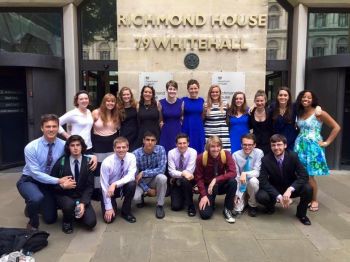 While in England, the students had a full workload during the week with class Monday through Friday and three papers due each week. The program also included the opportunity to meet with healthcare professionals and authors, including Richard Wilkinson. The opportunity to meet Wilkinson, who is co-author of The Spirit Level, was something psychology and theatre senior Greg Anderson enjoyed about the academics portion of the program.
While in England, the students had a full workload during the week with class Monday through Friday and three papers due each week. The program also included the opportunity to meet with healthcare professionals and authors, including Richard Wilkinson. The opportunity to meet Wilkinson, who is co-author of The Spirit Level, was something psychology and theatre senior Greg Anderson enjoyed about the academics portion of the program.
“We actually had to travel by train to a different town to go speak with him,” Anderson said. “All of that was a really cool opportunity because The Spirit Level was kind of the guiding material for the entire year of study last year. That was the book that we read over the summer before the class started, so it was really cool to actually talk to him and hear some of his ideas.”
When students weren’t in the classroom or meeting with professionals, they were out on the town exploring a new country. The students had free time on the weekends to take day trips to neighboring countries or view the many facets and attractions of downtown London.
Scheitz said she took a day trip to Oxford with a few of her friends that began at 4 a.m. and ended in the late hours of the evening.
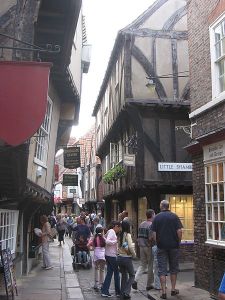 “We had such a crazy experience,” Scheitz said. “We slept in a park because we got tired, holding our backpacks. We didn’t plan anything. We walked around, we talked to people, we asked what was cool in the city and found random museums to walk into. Just taking the chance to not plan something for once, and just go and do it is a really important thing to get out of study abroad.”
“We had such a crazy experience,” Scheitz said. “We slept in a park because we got tired, holding our backpacks. We didn’t plan anything. We walked around, we talked to people, we asked what was cool in the city and found random museums to walk into. Just taking the chance to not plan something for once, and just go and do it is a really important thing to get out of study abroad.”
While some of the weekend adventures stuck out in the students’ minds, they also understood the importance the program has had on their academic and career goals. Tristyn Walton, community governance and advocacy sophomore, said some of the things she learned in the program will help her down the road.
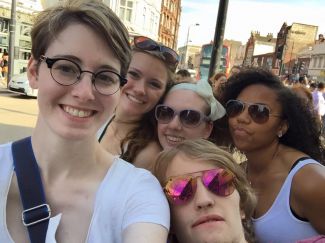 “This could definitely help me directly after college (and) after law school because I want to do something in the healthcare field, possibly healthcare public policy related,” Walton said. “Being able to go to London and see how they operate and how they are able to afford and give the people of England affordable healthcare for everyone gives me an idea of how to possibly implement that here in the U.S.”
“This could definitely help me directly after college (and) after law school because I want to do something in the healthcare field, possibly healthcare public policy related,” Walton said. “Being able to go to London and see how they operate and how they are able to afford and give the people of England affordable healthcare for everyone gives me an idea of how to possibly implement that here in the U.S.”
A Professorial Assistantship with Dr. Todd Fenton
by Zach Brown, Social Science Scholars, 2015 Cohort
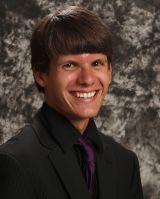
I work under Dr. Fenton in the Michigan State University Forensic Science laboratory for my Professorial Assitantship (PA). While it doesn’t exactly look like the labs Hollywood presents in CSI or Bones, this facility produces some of the highest-quality research in the area of forensics, as well as assisting regional police organizations with cases on occasion. Dr. Fenton is currently waiting for a grant from the National Institute of Justice to kick in in January, after which we will procure at least 36 human heads for testing. While there is a sizable amount of literature on the effects of sharp force trauma to certain parts of the body, little exists on blunt force trauma, and very little done since the 1950s on blunt force trauma to the skull. These heads will be struck with varying blunt interfaces, reproducing the effects a person may suffer if hit with a blunt weapon.
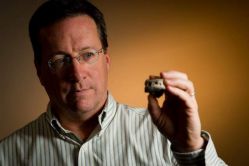 The type of surface will be varied, as well as the part of the skull the implement strikes and the speed at which it is swung. This is the follow-up to another study produced by this lab involving a very similar experiment but with porcine skulls. What the Forensic Lab hopes to accomplish through this research is a means to determine, based on the size, number, and location of fractures, where, how many times, and the type of object used to strike a person. Since this project won’t begin until January 2016, I have been working on continuing the previous porcine study. We’ve been working on increasing the sample size of the initial study, which has led me to skinning pig heads that have been struck, cleaning the organic material from them, gluing them back together, and mapping fractures. I have also worked with another undergraduate research assistant from the department of engineering at mapping fractures in porcine femurs of varying ages, with goals similar to the ones above. In this process, I have been involved in extracting the femurs from pigs, and then taking data while testing was performed. On a few special occasions, I have been allowed to assist in forensic cases brought in by various police departments. Working with Dr. Fenton and everyone else in the Forensic Lab has given me the opportunity to witness firsthand what a forensic pathologist does as well as the ability to participate in research very early in my career at Michigan State University.
The type of surface will be varied, as well as the part of the skull the implement strikes and the speed at which it is swung. This is the follow-up to another study produced by this lab involving a very similar experiment but with porcine skulls. What the Forensic Lab hopes to accomplish through this research is a means to determine, based on the size, number, and location of fractures, where, how many times, and the type of object used to strike a person. Since this project won’t begin until January 2016, I have been working on continuing the previous porcine study. We’ve been working on increasing the sample size of the initial study, which has led me to skinning pig heads that have been struck, cleaning the organic material from them, gluing them back together, and mapping fractures. I have also worked with another undergraduate research assistant from the department of engineering at mapping fractures in porcine femurs of varying ages, with goals similar to the ones above. In this process, I have been involved in extracting the femurs from pigs, and then taking data while testing was performed. On a few special occasions, I have been allowed to assist in forensic cases brought in by various police departments. Working with Dr. Fenton and everyone else in the Forensic Lab has given me the opportunity to witness firsthand what a forensic pathologist does as well as the ability to participate in research very early in my career at Michigan State University.
MSU Social Science Scholar co-authors study on “Fifty Shades of Grey”
by Robert Bondy, MSU Journalism Senior
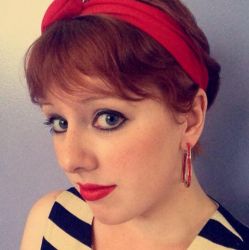
Not many freshmen can say they are a co-author on a study published in the Journal of Women’s Health, but Social Science Scholar and political science major Samantha Perry can.
While millions of viewers hit the theatres last February to seek romance and thrills through the showing of “Fifty Shades of Grey”, Perry, now a sophomore, was in attendance as part of Dr. Amy Bonomi’s research team studying whether women perceived sexual abuse in the movie. Bonomi, chairperson and professor of MSU’s Department of Human Development and Family Studies, led the study that confirms women aged 18-24 were in fact able to recognize a harmful relationship in the film marked by controlling and manipulative behavior, stalking, and emotional and sexual abuse.
The study involved focus groups of 30-40 randomly selected women from MSU who were taken to the movie and then questioned about it. Perry, along with three other co-authors, took notes and observed the focus groups. Perry then met with the team to comb through the responses and determine some themes. Over the summer – while studying abroad in London with the Social Science Scholars, of which she is a member – Perry helped revise, edit and add to the drafts Dr. Bonomi sent to her and the other co-authors. The entire process took nearly seven months to complete, but Perry feels it was well worthwhile.
“It was the first faculty-led research project that I’ve ever done, so it was pretty exciting for me,” Perry said. “To have it published and having a writing credit on it, that’s really exciting to me.”
Perry is well-aware of the professional experience the project provided and acknowledged the impact it can have on her future. Not only did she learn how to conduct qualitative research, she was also given the chance to help present the study in front of a scholarly panel at the Kellogg Center.
“Dr. Bonomi asked me to join her for the panel, and I thought she just meant sitting there watching as part of the study group team. But she wanted me to be on the panel, and it was really scary!” Perry said. “There were Ph.D.’s from here. There was a literature professor, a pop culture studies professor, and then me – a freshman in college! It was so scary, especially since one of them was very critical of the study and I sort of had to debate her on stage.”
Perry added that she believes she acquitted herself well in the debate, and she is hoping to get working on another project in the near future related to political science since she is also a member of the Political Science Scholars program.
“My mentor talked to me about helping her out on her research, so that would be interesting since that’s my field,” she said. “Probably a social issue related to politics.”
By participating in research projects when invited, taking advantage of mentorship opportunities, and showing a willingness to work diligently as part of a research team – even one not directly related to her major – Perry has positioned herself well for her future.
“I’m proud of being able to accomplish my goal of getting published as a freshman,” she said.
She has earned it.

